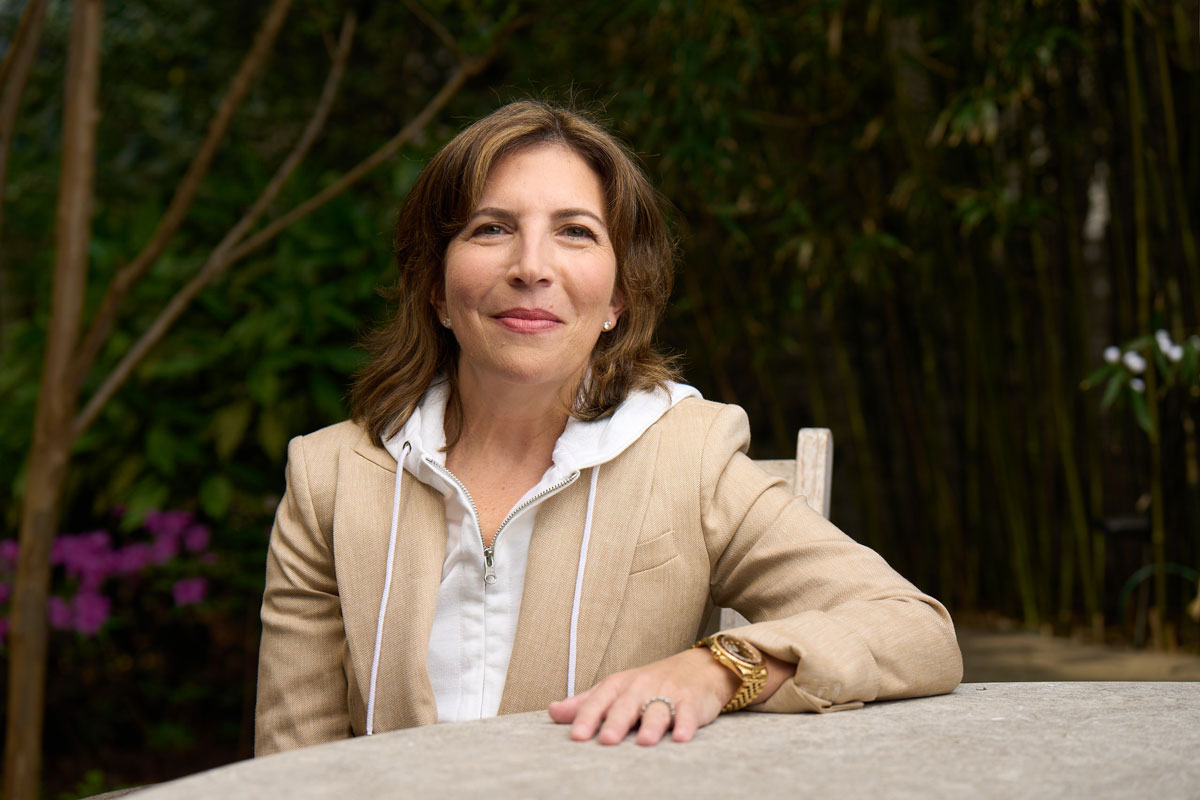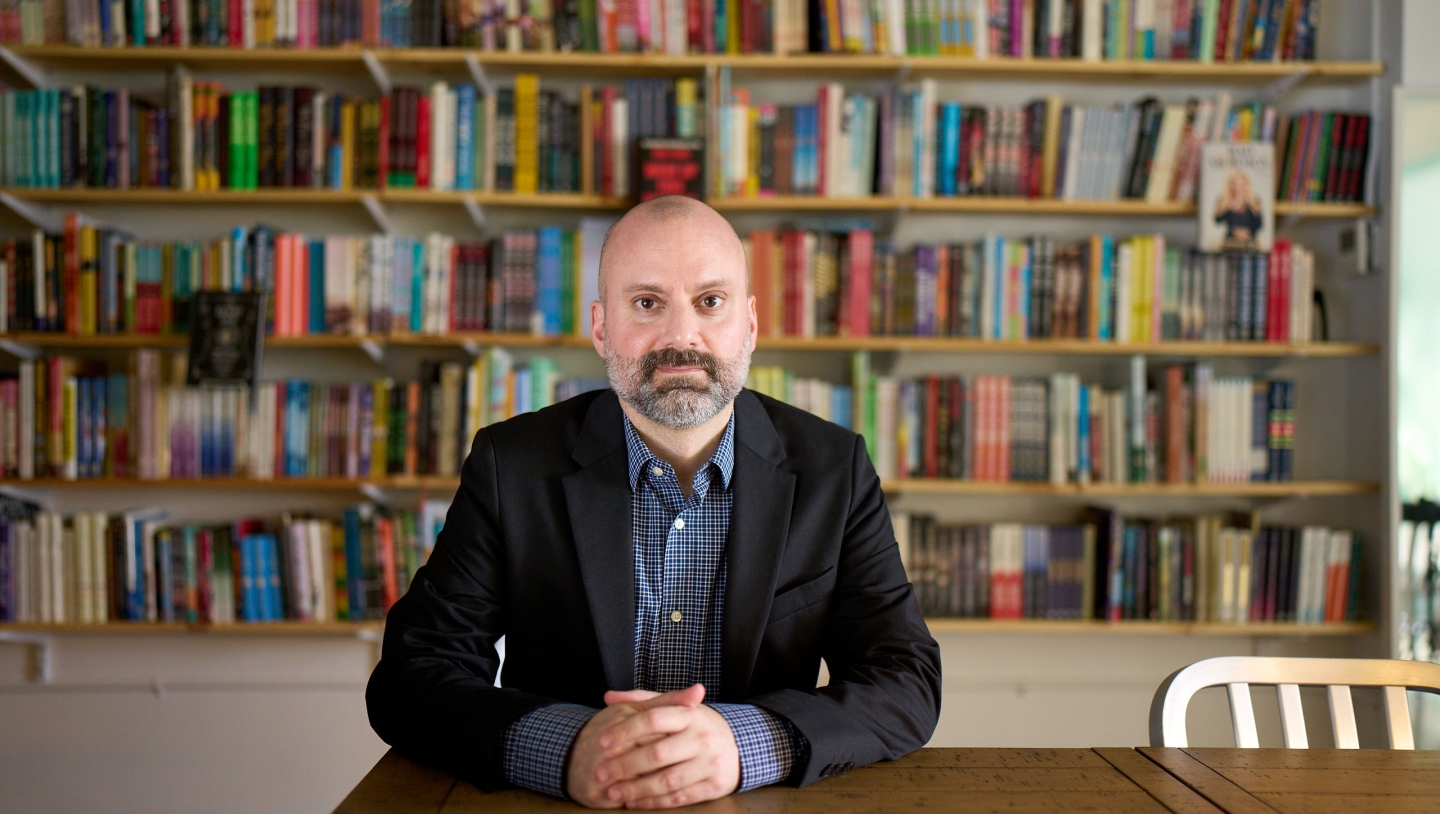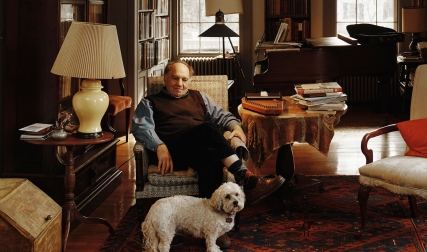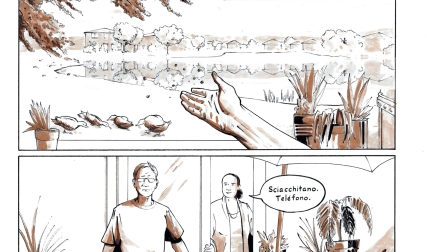Photographs by Laura Barisonzi
MICHAEL J. HARRIOT ’98
Folio Literary Management, New York City
Specializes in pop culture nonfiction
What I Love: Working with smart, creative people. Helping good authors get the success they deserve.
Toughest Part: There aren’t enough hours in the day.
What’s Changed Lately: There’s much less contact with people in the flesh, and what used to be a phone call is more likely an email now, so creating and maintaining relationships is harder. Also, just as publishers have been merging and buying each other up, literary agencies have been trending away from smaller, boutique operations and more toward big agencies.
How an Aspiring Author Can Get My Attention: Write a thoughtful, professional query letter that demonstrates you understand where your book fits in the market and why I might be the right person to represent it.
Mistakes That Writers Make: It’s surprising how many aspiring authors don’t do any research into what publishers are looking for. Many authors look for an agent and a publisher simultaneously, which is a huge mistake. Get an agent first and let them handle submissions. For nonfiction, you don’t have to—or want to—write the whole book until you have a book deal.
When I’m Pitched at a Cocktail Party: I tell them to feel free to email me. Unfortunately, I’ve never gotten a good book that way.
Any Preference for Fellow Alums? Ha. It wouldn’t turn a no into a yes.
The Influence of New Tech: We’re only beginning to understand the impact of AI. Submissions are up,
and AI will probably keep it that way.
Surprising Fact: Many books, including successful ones, only had one publisher bidding on them.
A Misconception About Agents: That we can will a book deal into existence whenever we please.
If I Weren’t in This Business: It would have been nice to get a little more out of that film studies degree. No regrets though.
Harriot lives in New York City. He majored in film studies.

MICHELLE WOLFSON ’95
Wolfson Literary Agency, New York City
Specializes in fiction for teens and adults
Toughest Part of My Job: I really hate it when something I love and believe in just doesn’t sell to a publisher or it doesn’t sell at retail. There are a million ways for this industry to disappoint you, but while the lows can feel really low, the highs can feel so high.
There are a million ways for this industry to disappoint you.
What I Love: Working with debut authors, particularly in fiction. I love telling debut authors I’ve sold their book. Fiction is so personal, and they often feel like a long-time dream is coming true.
How I Deal With Unsolicited Manuscripts: If someone is contacting me through the slush—unsolicited queries—they send a query letter and the first five pages of their manuscript. If I like the letter, which usually reads like the flap copy of a book, I might go to the five pages. If I love those, I might request more pages. If I love those, I might request the full manuscript. If I love that, I usually read it a second time just to be sure, and then, maybe, I’ll offer to represent the writer.
A Misconception About Agents: That we spend all day reading. I have two other agents working for me, and most of our reading is done at night and on weekends.
Do Fellow Alums Get Preference? It’s such a difficult business that it’s hard to say that I would give actual representation preference. So much depends on personal taste, so even if a project isn’t right for me, that doesn’t mean it’s not publishable.
When I’m Pitched at a Cocktail Party: I try to tell them how small my agency is before they can tell me about their book, just in case I don’t think it sounds up my alley. I can’t think of any books I’ve gotten that way, but I’ve met several good nonfiction authors over the years whom I’ve been able to connect with [other] agents.
Advice to Authors Who Don’t Sell: The most important thing is to tell them to keep writing. I have an author right now whose debut is coming out with Delacorte next summer. It was not the book I took her on for, but she kept writing, and we made it happen.
Wolfson lives in New York City with her husband and their two children. She majored in economics and math.

LEIGH EISENMAN ’99
Wolf Literary Services, New York City
Specializes in adult nonfiction
What I Love: The freedom to pursue something I’m interested in and figure out if there’s a book there. It’s also an incredible feeling to find the perfect publishing home for a project. A lot of people dream of writing books, and if I can play a tiny part in helping someone make that dream come true, then that’s a very good day at the office.
How I Deal With Unsolicited Manuscripts: Most agents these days accept queries by email only, so for me it’s just checking those emails. Other agents may have assistants who read their queries and pass along ones they think the agent will like. Agents get a lot of queries, so my advice for anyone trying to find an agent is to cast a wide net, do your research—it’s always nice if you can point to a book the agent has worked on that you loved—and be prepared to wait. It can be a long process.
How an Aspiring Author Can Get My Attention: A strong query letter shows that an author knows the market and has a great idea for his or her book. Writers should always check to make sure the agents they’re reaching out to actually work in the category they’re pitching.
Any Preference for Fellow Alums? A Dartmouth reference won’t impact whether I take on a client, but it will give me a moment’s pause. I did once get a query from a then-recent Dartmouth grad with a manuscript I loved, but it was outside my wheelhouse, so I referred her to a colleague who then sold the book.
When I’m Pitched at a Cocktail Party: More often it’s my parents meeting people on vacation who want to tell them about the book they’re writing. I can think of at least one person I met at a party last year whom I later signed as a client and sold her book, so it happens.
What I Read for Pleasure: Almost entirely fiction. I used to read only one book at a time, but most days I have two or three novels going at once, unless one really captivates me and I read that one to the exclusion of all others.
Eisenman lives in New York City with her husband and son. She majored in English.

SHANNON O’NEILL ’02
O’Neill Editorial,Washington, D.C.
Specializes in nonfiction
How I Got in the Business: As a teenager I would go to Politics and Prose, a landmark independent bookstore in D.C. I told my mom that when I grew up, I would work there. Lo and behold, after graduating, I started working as a bookseller there. One of the owners helped to introduce me to an agent, who hired me as his editorial assistant.
What I Love: I’m getting paid to learn. For somebody who’s insatiably curious, it’s perfect.
Toughest Part of the Job: Falling in love with the potential of a project rather than the reality of it. Sometimes deserving ideas just aren’t going to cut it at a mainstream level—people aren’t going to pay $26.95 to buy a book about that topic, even if the writer is very talented.
How the Business Is Changing: Agencies are fewer and fewer. These big conglomerates are eating up a lot of the smaller, independent ones.
How It Remains the Same: There’s still real admiration for the craft of writing. Some editors at the highest level still look for new talent, original voices, something that’s going to move people.
How Unsolicited Manuscripts Reach Me: It’s hard. It’s a lot about having someone vouch for you. There are always the outliers, the cold queries. Those are happy stories, but they’re one in a million.
For somebody who’s insatiably curious, it’s perfect.
Any Preference for Fellow Alums? I do notice if there’s a Dartmouth connection. That said, “Go Big Green” and all of that, but you’ve got to have the goods.
The State of Writing in General: Writing has been professionalized to a degree that makes it harder to break through, and it means that more people like me are working behind the scenes, which presents its challenges. Sometimes I’d rather see something messy.
My Cocktail Party Response to a Pitch: Forget cocktail party. It’s at the gas station or coming out of a parent-teacher conference. I take people seriously, and you can tell after a moment or two whether they’ve devoted time and energy, in which case I’m happy to hear them out.
O’Neill lives in Maryland with her three children. She majored in environmental studies and Native American studies.




